Chargeback Reversal
Chargeback Reversal Table of Contents
- Chargeback Reversal
- What Are Chargebacks?
- Chargebacks Process
- Understanding And Avoid Reversed Charges
- Problems of Excessive Chargebacks
- Ability To Reverse Chargebacks
- Overview of Chargeback Reversal
- Best Payment gateway Solution by Rating
- Best Payment gateway Solution by Price
- Best Payment gateway Solution by Rated Features
- Check Your Payment gateway Solution Offers Round The Clock Support
- Make Sure Your Payment gateway Solution Offers The Features You Need
- Best Payment gateway Software Solution Verdict
- Payment gateway Software Frequently Asked Questions
- What is the best Payment gateway Solution?
- What is the cheapest Payment gateway Solution?
- Is there a free Payment gateway Solution?
- View all of the top Payment gateway Software Solutions
- Payment gateway Alternatives
- Payment gateway VS Side by Side Comparisons
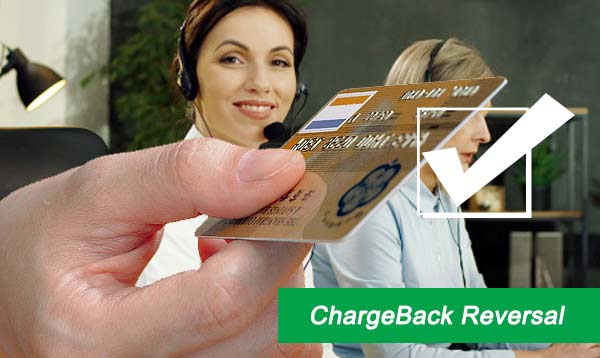
Chargeback Reversal
For many consumers a chargeback is a negative experience, where they have incurred charges on a credit card but the credit card company has declined to issue the card again, or to make any kind of reimbursement. This situation usually arises when the consumer fails to give the credit card issuer a valid return address, or fails to give a copy of their credit report together with a statement that accurately reflects all charges made and any related disputes. It may also arise from any fraudulent transactions with your credit card. The credit card company will then request for you to return all the charges which you have accrued, along with a chargeback.
What Are Chargebacks?
Chargebacks are actually an approval of a claim by the credit card company against the credit card holder. They do not however, actually take away your money from you. If you have a Chargeback, it means that the credit company (ifax) has opened an investigation into a possible fraudulent charge transaction. They are then attempting to recover the funds from you, either through a charge-off an attempt at recovering the money that was illegally taken from you in the first place, or a charge-off and a freeze on all your credit accounts.
What are Chargebacks? When you receive a Chargeback, you will be notified via the mail, e-mail or phone call. You should check to see if the Chargeback is associated to a negative item on your credit report, such as a collection account, a charge-off or an inquiry. This will help to determine whether you need to contact the credit card company regarding a refund of the money, or to negotiate terms of repayment.
Chargebacks Process
Chargebacks Process The primary aim of the process is to ensure that customers receive the goods as promised and that goods are returned in good condition. Commonly, customers will file a chargeback with their bank within 60 days of the sale date, or within 90 days of a failed transaction if not. If the chargeback is approved, the bank has 45 days to respond whether they agree with the request or not.
Types of Chargebacks Many people assume that the terms of a merchant's chargebacks process will always be the same, but this is rarely the case. Many merchant accounts will accept a dispute after a payment has been made, while others will not. It is important for both sides to have legitimate reasons for filing a chargeback. If the customer has proof that the merchant did not follow through with expected services, the merchant may be required to re-offer the product or pay out the difference. However, merchants should always attempt to resolve any chargebacks in order to avoid the possibility of getting blocked on the Internet. This can have serious consequences for any website as it prevents visitors from buying products or accessing the merchant's site.
Merchant's Policies Often, merchants will impose a variety of policies and procedures for chargebacks, including the process for credit cards. The main policies will state that merchants must investigate the validity of the chargebacks, refund the chargebacks, and update the merchant's records to indicate when chargebacks have been removed or not. In addition, most chargebacks policies will require that merchants not make their services available to customers who fail to meet their terms of service. As a result, merchants are usually very friendly and helpful to their credit cardholders, but this can change depending on the particular company. As a consumer, you should be aware of your rights and understand when and how you should be involved in a process.
Understanding And Avoid Reversed Charges
Credit cardholders that are aware of chargebacks should take note that they can 'forget' about being charged for a late payment, but they will still incur interest charges on the original debt. In order to avoid being charged for a chargeback when you have not been able to pay your account in full, it is important to know the process of how credit card companies to determine which accounts will be charged. Most chargebacks result from a customer not having enough available credit to settle the balance due. As such, if you know you will not be able to pay the full amount owed, you should make every effort to pay the minimum required payment on time, otherwise the chargeback may be issued. Even if you are able to settle the account in full, if you do not pay the chargeback within sixty days the chargeback will be applied to your next due payment. Therefore, in order to avoid being charged for a chargeback, you should always try to settle your accounts as quickly as possible.
Another way to avoid being charged for a chargeback is to request a copy of the account statement before making any purchases. If the account is an open one, the credit card company should send you a statement letting you know about the status of your account. If there is a chargeback, the credit card company must give you thirty days written notice in writing. Then you can respond to the credit card company to try to work out an agreement for the refund of the funds that you owe them. If no agreement can be made, you can file a complaint with the appropriate agency that enforces laws regarding credit card transactions. You can check with the local Better Business Bureau to see if your credit card company has ever had a complaint against it.
If you are receiving a chargeback, the first thing you need to do is notify your credit card company. You should explain the situation to them and let them know that you are having a problem with chargebacks. Many chargebacks happen for simple reasons such as a customer forgetting that he or she has paid an invoice. If this is the case, the customer should immediately contact the credit card company to let them know that they have not received the money they are owed. This will help get them to start looking into how their system works so that they can make their process better for their customers. If you cannot come to a resolution between you and the chargeback company, you should send them a dispute letter in which you state why the transaction was unauthorized and why you believe that the sale of the item should be reversed.
Problems of Excessive Chargebacks
Are you having problems with your credit card company regarding the way they are handling your finances? If you have, that's great. Having problems with your credit card company is certainly not the end of the world and certainly not something to worry about. In fact, this article is going to go over some of the best methods you can use when trying to solve problems of excessive credit card debt.
One thing that many people do not understand when dealing with a credit card company is how a credit card works. A credit card is simply a form of currency that is being used to pay for goods and services. You are borrowing money from yourself and the company has the right to repossess any goods or services you fail to pay for. This is why it is very important to pay your bills on time, every time. Delaying the payment of your bill results in them taking legal action against you, which could result in you having to deal with excessive credit card debt.
The easiest way to solve problems of excessive credit card debt is to get in touch with your company and ask for a reduction in the amount of interest that they are charging you on your outstanding balance. Many companies will be willing to do this if you are able to show them that you are experiencing financial hardships. By reducing the interest rate you are paying, you are effectively reducing the amount of money that you are spending each month on your debt. This can be achieved by contacting your credit card company and asking them to reduce the interest rate that you are currently paying.
Ability To Reverse Chargebacks
If you are charged a fee for a transaction and you feel that the transaction was wrongly made against you; you can use a Credit Card Debt Consolidation Firm to help you recover from your financial troubles. A credit card debt consolidation firm will work with your creditors in order to help you negotiate with them to have late fees or penalties waived off, in return for a monthly payment from you. They also offer a repayment plan to help you manage your finances better so that you will be able to get out of debt as quickly as possible. This type of plan is usually a legally binding agreement.
When you are working with credit card firms to try and recover from your debts you need to understand that sometimes chargebacks do occur. When a chargeback occurs, it means that the bank that issued the chargeback has actually received notification from the merchant account provider that the merchant account has been denies. The bank in turn would investigate the chargeback and would either end of the transaction or would try to reverse charges. If the chargebacks continue to happen after you have been informed of the possibility of chargebacks being reversed you may have to consider other methods of dispute which may include arbitration or going to court.
Even though it appears that way from the perspective of consumers new and seasoned cryptocrats see this as a very real threat to privacy, and the financial future of ordinary people because chargebacks can occur without any notification. This threat of having one's account reversed or having one's charges reversed has caused users of prepaid credit cards to move their funds into currencies that are not subject to the whims ofICO networks. This is because, ifICO could reverse charges it could also easily reverse transactions of any other cryptocoin. Cryptocurrencies such as Dash and Litecash are under increasing pressure fromICO networks to reverse transactions on their systems in order to protect their clients funds.
Scroll down to read our indepth Payment Platforms guide. What you should know, Payment Platforms features, price plans and support. Pros and Cons of Payment Platforms as a payment gateway, everything is explained below.
Overview of Chargeback Reversal
Spreedly is a software company that specialises in payment-gateway software for small to enterprise level businesses.
Spreedly is listed as the best payment-gateway software related to Payment Platforms. Spreedly was founded in 2008 in Durham, NC and currently has over 79 employees registered on Linkedin.
Best PAYMENT GATEWAY Solution By Rating
Get our stories delivered
From us to your inbox weekly.
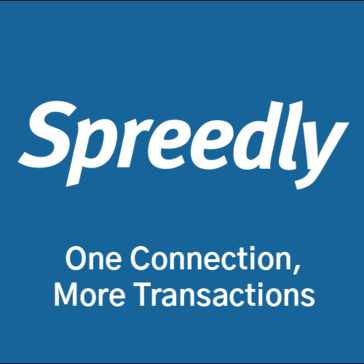 Spreedly
Spreedly
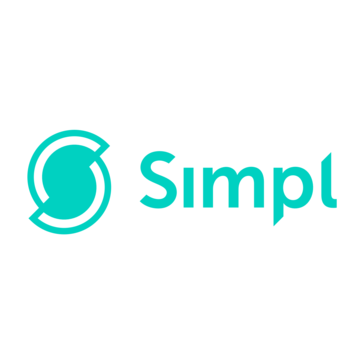 Simpl
Simpl
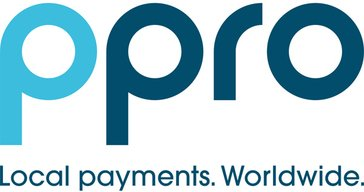 allpago
allpago
 EBizCharge
EBizCharge
 Bolt
Bolt
 PayLane
PayLane
 Paytm Business
Paytm Business
 Apple Pay
Apple Pay
 Paystack
Paystack
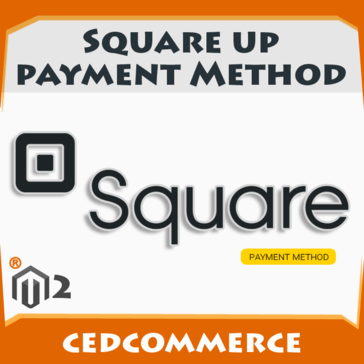 SquareUp Payment Method
SquareUp Payment Method
 Ingenico ePayments
Ingenico ePayments
 PayMart
PayMart
 Paymill
Paymill
 Yapstone
Yapstone
 TRUSTLY
TRUSTLY
 Wirize
Wirize
 Zotapay
Zotapay
 Zooz
Zooz
 Zipmark
Zipmark
 XTRM
XTRM
